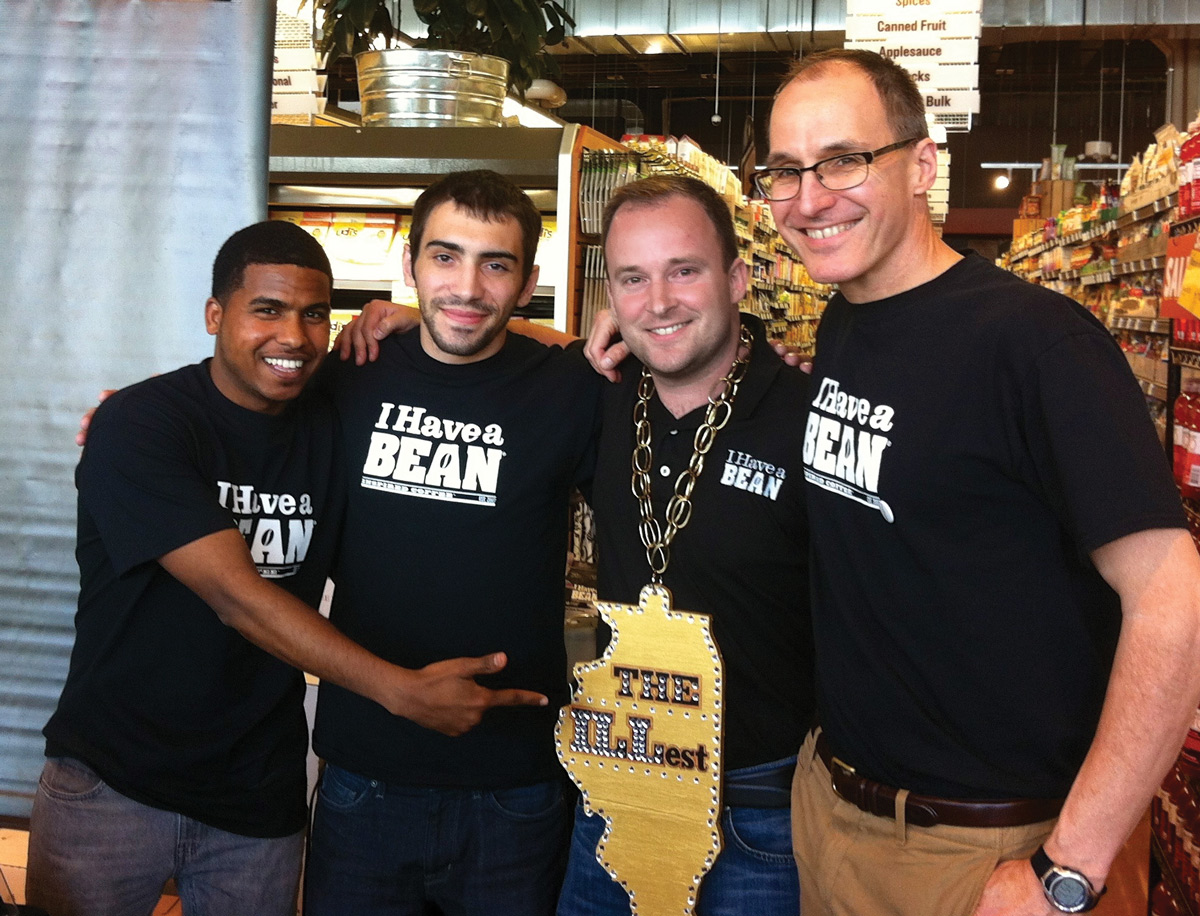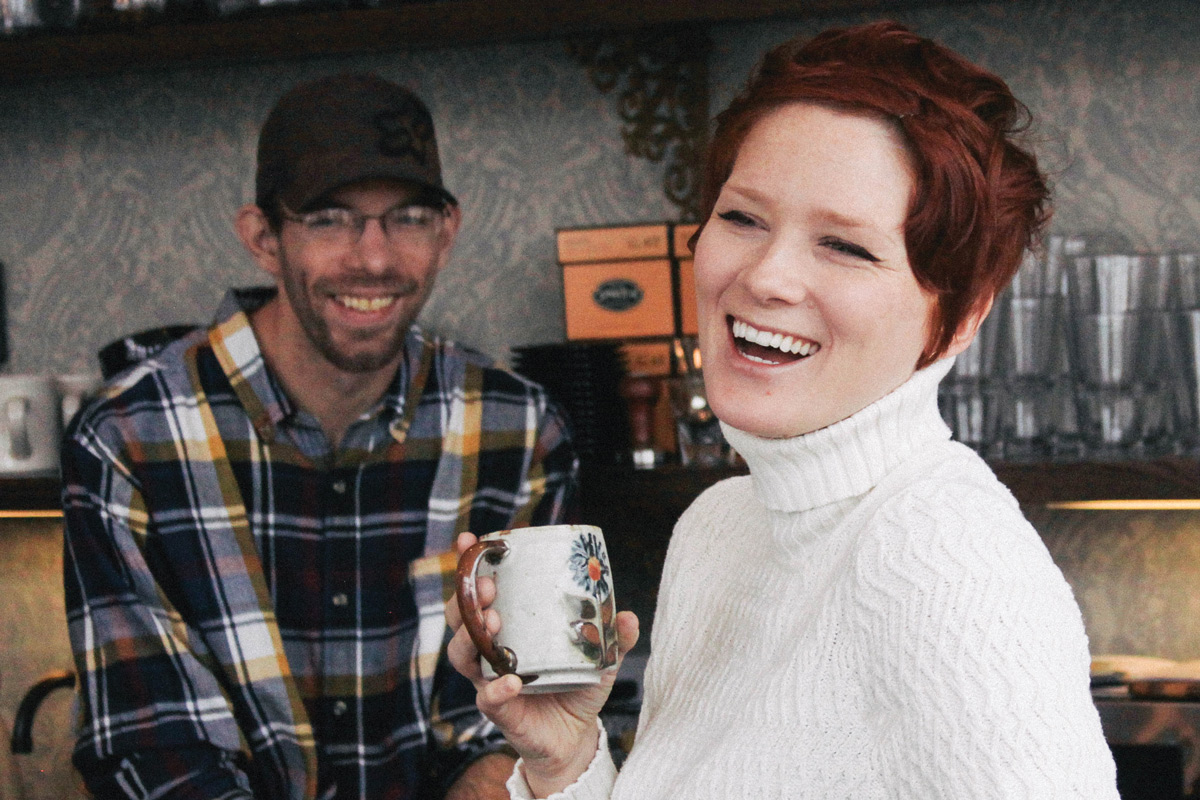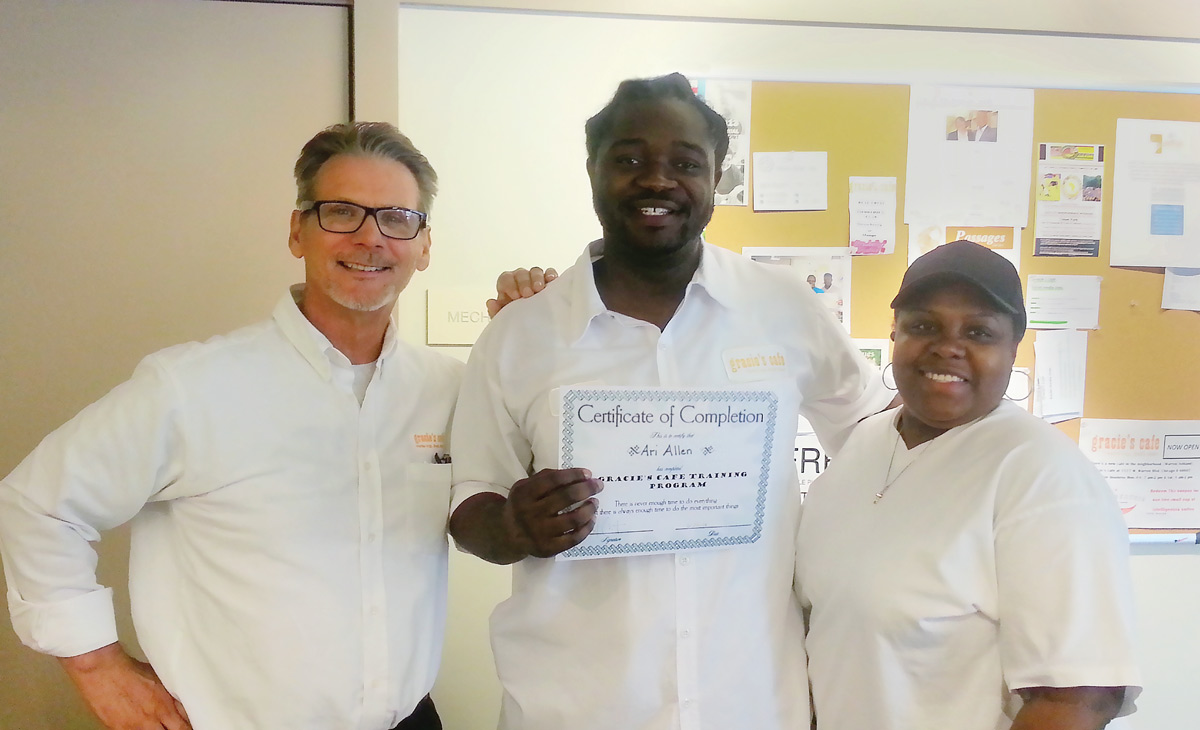[P]ete Leonard never planned to start a business with a social mission. The Chicago software developer fell in love with the art of coffee roasting during a mission trip to Brazil and retrofitted his barbeque grill to roast small batches of beans. In 2005, around the same time neighbors started asking to purchase his coffee beans, Leonard learned that a relative had been arrested and sentenced to prison for a felony.
“When he got out of prison, he couldn’t get a job,” Leonard recalls. “I watched him send out resumes, fill out applications and go through interviews and then get rejected because he had to check the box” that said he’d been convicted of a felony. “It seemed so wrong to me.”
During a fundraising dinner for a program that supports ex-prisoners, Leonard learned that his relative was one example of a significant problem. Former inmates often lack education and work experience, which, combined with their criminal records, makes it difficult to find jobs after being released from jail.

Leonard wanted to make a difference. A serial entrepreneur whose passion for DIY coffee roasting grew into a lucrative side business, Leonard launched Second Chance Coffee Company in 2007 with a mission to provide jobs to those with felony convictions. While the business has a strong social mission, Leonard is also focused on roasting great coffee. To that end, Second Chance selects coffee beans that score eighty-seven or higher and roasts them in a roaster souped up with a high-tech software program that Leonard designed himself.
“I didn’t want crappy causal coffee that people would buy because of our social mission,” he explains. “I wanted to roast great coffee, coffee that we felt proud of.”
Coffee sold under the I Have A Bean label has been a huge hit for Second Chance Coffee Company. It’s not just coffee drinkers who support the business. Leonard fields calls from elected officials, parole officers, pastors, and local business owners—he’s even gotten calls from grandmothers whose grandchildren are in prison—who order coffee for their churches or offices, ask about job opportunities, and applaud him for launching a successful business with a social mission.

“We hope that the quality of our product and the success of our business will convince other business owners to look beyond the ‘checkmark in the box’ and at least talk to applicants who have committed felonies,” he says. “There are an enormous number of people with tremendous skill who are being barred from working because employers are afraid.”
The goal of the mission-based business is to provide more than a paycheck. The staff learn valuable skills and gain confidence in their work ability (and an employment reference) that could help them transition to other companies or industries, but Leonard will also happily provide ongoing, long-term employment to staff who want to remain with the company.
It’s impossible to gauge the number of coffee shops and roasters who hire people with criminal histories. Outside of the few mission-based organizations and training programs that cater to ex-offenders, operators tend to be quiet about their policies, making hiring decisions on an individual basis.
[M]ark Smesrud estimates that half of the customers who order a cappuccino, coffee, or chai at Purple Door Coffee in Denver have no idea that their baristas have ever been arrested or served jail time. The non-profit organization trains staff in the art of pulling the perfect shot and pour-over brewing along with broader skills, like customer service and teamwork, that they can take to many other jobs.
“There are a lot of opportunities for baristas. We want to teach them to do coffee well and pursue coffee if it’s their goal,” explains Smesrud, program director for Purple Door Coffee. “But we also want to teach skills that can transfer to any job.”
Trainees work at Purple Door Coffee for six to twelve months, earning wages plus tips, before graduating and transitioning into other jobs. Smesrud believes in the potential of the program to change lives but admits that there are challenges to working with ex-offenders. One of the biggest difficulties, he thinks, is training staff to interact with customers.
“In prison, there are rules for how to do things, a schedule and routine—and that’s great for learning to make coffee because there are rules, a specific formula— but their people skills can be lacking [and] they can blow up about small things like a customer telling them their coffee order is wrong,” he explains. “It takes training and understanding to help them master day-to-day interactions.”
Helping ex-offenders transition from a training program into a full-time job is also challenging. Even with barista skills, glowing references from coffee shop managers, and a desire to turn their lives around, a criminal record is a significant barrier to finding employment. Smesrud hopes that as the coffee industry explodes in Denver, new businesses will give graduates of the Purple Door Coffee training program a shot at full-time work.
[I]n Chicago, Gracie’s Café, a barista training program for ex-offenders operated in conjunction with Saint Leonard’s Ministries, partners with companies that understand the ex-prison population and are willing to hire staff with criminal records. (The training program is not open to violent felons. Instead, it works with offenders who have misdemeanors and other minor charges.) Operations manager Mike Ellert admits that there are more trained baristas needing jobs than businesses willing to give them a chance. “These are people who have made mistakes in the past but are just as capable, wonderful, and efficient as anyone I’ve ever worked with,” Ellert says.
“Our mission creates wonderful press,” he explains. “From a marketing perspective, the benefits are overwhelming; we’ve been receiving media attention since we opened our doors.”
But positive press isn’t enough to keep the lights on, and operating a mission-based organization is expensive. For example, a traditional coffee shop might have two baristas and a manager working each shift; at Gracie’s Café there are six baristas working plus a manager and additional staff to help with training.
As a nonprofit, the café relies on grants and donations to support operations. Since the coffee shop opened in 2013, twenty baristas have graduated. There can also be a benefit to the bottom line. The IRS offers a Work Opportunity Tax Credit that provides businesses with a credit of up to forty percent of the income taxes paid on the first $6,000 of wages to felons on the payroll.
Second Chance Coffee Company has employed fifty men and women convicted of felonies since 2007. To ensure that he hires candidates with the determination to turn their lives around and the drive to work hard, Leonard has a strict application and screening process. In addition to filling out applications and showing up on time for interviews, applicants must submit references (since most have no previous work experience, he accepts reference letters from parole officers). Leonard also conducts background checks.
“We want to make sure that they actually have felony convictions,” he explains. “Some people want to work here so badly that they lie about their criminal histories.” Getting hired at Second Chance Coffee Company requires more than a rap sheet. In addition to minimum expectations like showing up on time, working hard, and taking initiative, Leonard looks for candidates who are willing to take responsibility for their mistakes. An ideal employee, according to Leonard, is one who is committed to turning his life around, not one who only wants a job to satisfy a parole requirement.
Louis Dooley learned about Second Chance Coffee Company when he attended a networking group for ex-offenders where Leonard was the guest speaker. “I couldn’t wait for him to finish speaking so I could introduce myself and ask him a million questions,” recalls Dooley. “What he was doing sounded too good to be true.”
After serving fifteen years for attempted murder and armed robbery, Dooley was eager to rebuild his life. With no job skills and a felony conviction, his options were limited. Leonard provided the lifeline he needed to succeed after prison. “I promised that when I got a job, I was going to be the best employee they ever had out of appreciation that I was getting a second chance,” Dooley says.
“As fulfilling as it is, it’s also the hardest work I’ve ever done. I hope that what we’re doing—hiring felons to produce a great product—convinces other people to give felons a chance.”
Even though he hires those he thinks will work out, staff members sometimes stop coming to work or get re-arrested and return to prison. But, for those who are determined to turn their lives around, Leonard is rewarded with dedicated and hardworking staff who take pride in their work.
Before hiring staff with criminal records, roasters and coffee shop operators need to understand that there is additional effort required to work with a post-prison worker. And it doesn’t necessarily have to do with the former prisoner. For starters, Leonard believes that managers should not tell staff that their new coworker has a criminal record.
“You’re instantly judged when people know that you’ve been in prison [and] it’s easy to point to a convicted felon if something goes wrong,” he says. “As long as it’s not endangering the staff not to know, I think it needs to be kept between the manager and the [felon].”
The opportunity to prove their worth does not go unnoticed (or unappreciated) by ex-offenders. At Gracie’s Café, a bulletin board is filled with smiling photos of graduates and cards thanking the coffee shop for believing in those who needed a second change. “The gratitude is overwhelming,” Ellert says. Leonard agrees. “We get to see the impact that we’re having,” he says. “As fulfilling as it is, it’s also the hardest work I’ve ever done. I hope that what we’re doing—hiring felons to produce a great product—convinces other people to give felons a chance.”
In 2012, after working for Second Chance Coffee Company for two years, Dooley was offered a position with a church ministry. While he no longer logs forty hours per week with the coffee roaster, he promotes the I Have A Bean brand during public speaking events and sells coffee for weekly church services to supplement his income. “When you’re released into the world [after incarceration] you’re made to feel like a worthless piece of trash. This opportunity made me feel like a man, like a provider; it gave me a feeling of purpose and meaning,” he says. “I’ll promote I Have A Bean until the day I die,” he says.
—Jodi Helmer is a regular contributor to Fresh Cup.


















